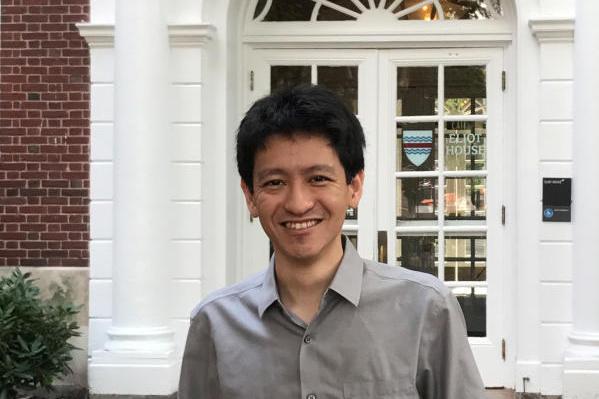Li Shengwu's application to quash court order dismissed
Sign up now: Get ST's newsletters delivered to your inbox

Mr Li Shengwu had applied to the court to set aside a court order that allowed the Attorney-General's Chambers to serve him court papers in Massachusetts, United States, where he works.
PHOTO: REUTERS
Follow topic:
SINGAPORE - The High Court has dismissed an application by Mr Li Shengwu to quash a court order in the contempt of court case brought against him by the Attorney-General's Chambers (AGC).
Mr Li, the nephew of Prime Minister Lee Hsien Loong, had applied to the court to set aside a court order that allowed the AGC to serve him court papers in Massachusetts, United States, where he works.
His lawyers, Mr Abraham Vergis and Ms Asiyah Arif from Providence Law Asia, told The Straits Times on Monday (March 26) that Justice Kannan Ramesh had dismissed the application with costs after considering written and oral submissions.
"While Shengwu respects the Court's decision, he is understandably disappointed with the outcome. Given that novel and important legal issues arose for determination, he is currently considering whether to appeal against the decision," they said.
Mr Li, 32, was served court papers for contempt of court on Oct 17 at his work place at Harvard University by a US-based legal services firm.
The eldest son of Mr Lee Hsien Yang is being taken to court by the Government over a Facebook post he put up on July 15 last year (2017), in which he said "the Singapore Government is very litigious and has a pliant court system".
He also said that foreign media had been cowed into self-censorship because of previous legal action.
His post was related to a family dispute involving his father, his auntie Lee Wei Ling, and PM Lee, over the fate of the 38, Oxley Road home of their late father, Mr Lee Kuan Yew. The dispute had spilled into the public sphere in June last year (2017).
The AGC called the post an "egregious and baseless attack" on the judiciary and had written to Mr Lim to demand that he remove it and apologise.
Mr Li did not agree, arguing that his post was private and did not constitute contempt of court when read in context. He amended the post instead.
The AGC then applied for, and was granted, permission from the court to initiate contempt of court proceedings against him in August last year (2017).

